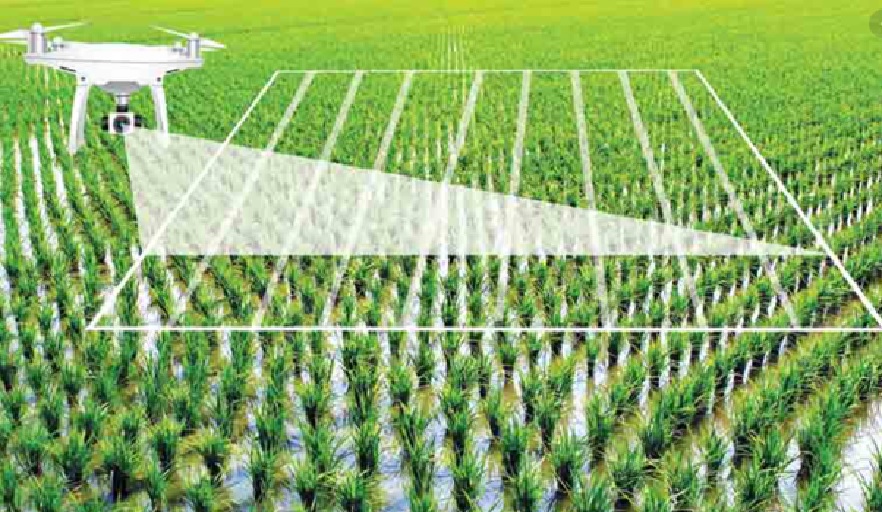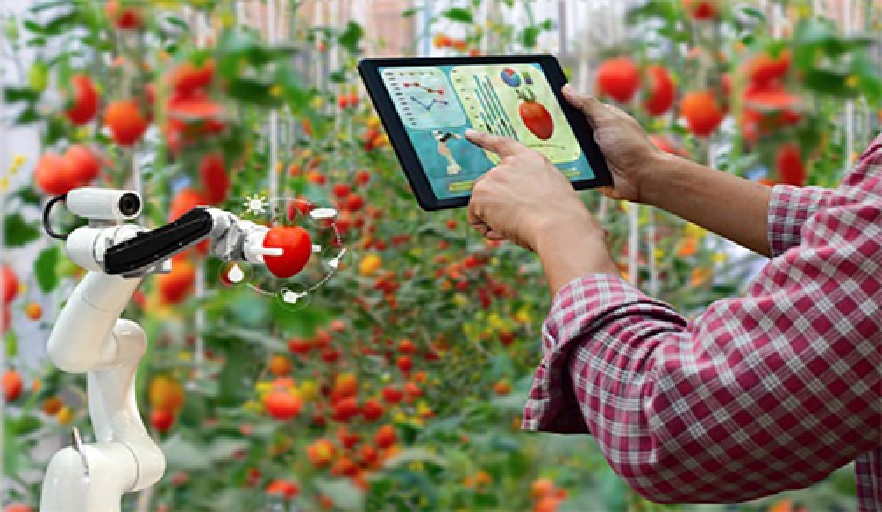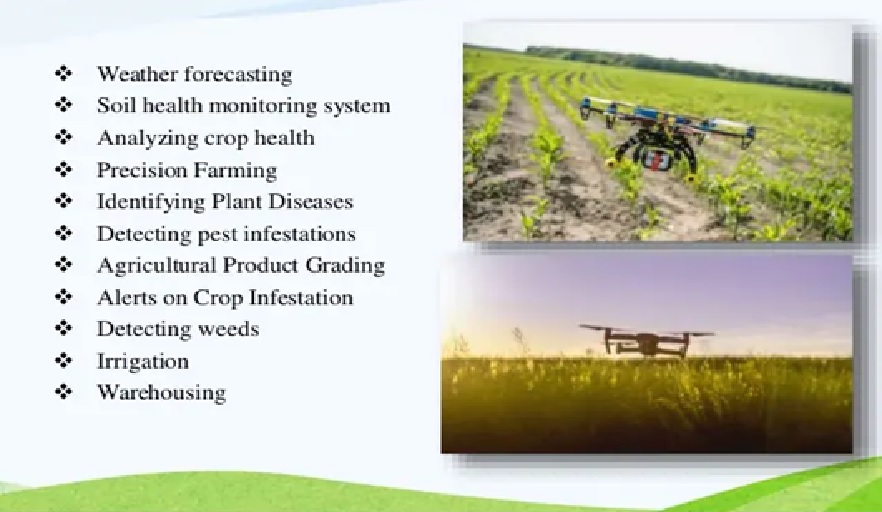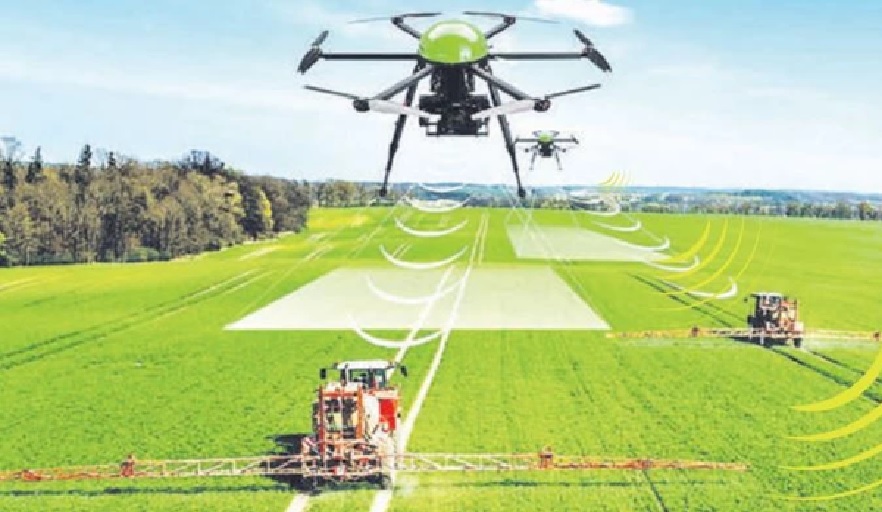The Artificial Intelligence (AI) in Agriculture
Artificial intelligence (AI) is expected to play a key role in the growth of Indian agriculture relieving the sector from stressful conditions and catalyzing shift towards data-driven farming, [1] according to a Nasscom-Ernst & Young report titled ‘Leveraging AI to maximize India’s agriculture output.’ The AI in agriculture is shown in figure 1.
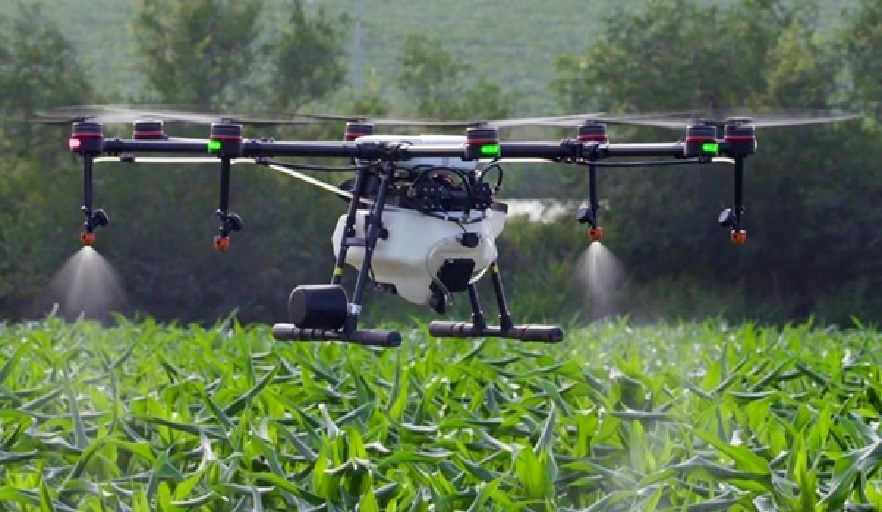
Figure 1: AI in Agriculture
Agriculture may be the most ancient of occupations, yet its relevance has only become bigger with the imminent threat of food insecurity. Technology powered by Artificial intelligence is ensuring the sustainability of quality food production for the coming decades. AI solutions are being used to diagnose pests, predict the best time to sow and gauge prices for produce. [2] Drones, hydroponics, artificial lights and AI-powered cameras are protecting crops from wild animals.
The agriculture industry is turning to AI for solving the double trouble of the food crisis and food wastage in the wake of locust swarms, climate change, droughts and floods. Just as AI solutions have seeped into every aspect of our lives music discovery and restaurant recommendations to banking and fitness, so also with agriculture. In fact, the contribution of artificial intelligence in agriculture is only set to increase with agri-tech startups cropping up (pun intended) in Bengaluru, Hyderabad and New Delhi.
Agriculture and farming are one of the oldest and most important professions in the world. It plays an important role in the economic sector. [3] Worldwide, agriculture is a $5 trillion industry.
The global population is expected to reach more than nine billion by 2050 which will require an increase in agricultural production by 70% to fulfill the demand. As the world population is increasing due to which land water and resources becoming insufficient to continue the demand-supply chain. So, we need a smarter approach and become more efficient about how we farm and can be most productive
Benefits of such AI analysis [4]:
- Identify pest attacks and plant health problems
- Save the excess use of pesticide and herbicide
- Improve soil fertility maintenance
Besides health monitoring, autonomous drones can spray pesticides and herbicides in carefully assigned field areas. Research confirms that crop-spraying drones are effective to simplify field management, reduce human effort, and improve yields.
We need to look for ways to help farmers minimize their risks, or at least make them more manageable. Implementing artificial intelligence in agriculture on a global scale is one of the most promising opportunities.
AI can potentially change the way we see agriculture, enabling farmers to achieve more results with less effort while bringing many other benefits. [5] However, AI is not a technology that works independently. As the next step on the way from traditional to innovative farming, AI can supplement already implemented technologies.
Agribusinesses need to know that AI isn’t a panacea. However, it can bring tangible benefits to small everyday things and simplify the lives of farmers in many ways.
References:
- https://www.livemint.com/technology/tech-news/ai-to-play-a-key-role-in-india-s-growth-in-agriculture-nasscom-ey-report-11616681716106.html
- https://thecsrjournal.in/artificial-intelligence-in-agriculture-in-india/
- https://www.analyticsvidhya.com/blog/2020/11/artificial-intelligence-in-agriculture-using-modern-day-ai-to-solve-traditional-farming-problems/
- https://idapgroup.com/blog/artificial-intelligence-in-agriculture/
- https://intellias.com/artificial-intelligence-in-agriculture/
Cite this article:
Vinotha D (2021) The Artificial Intelligence (AI) in Agriculture, AnaTechmaz, pp 1


